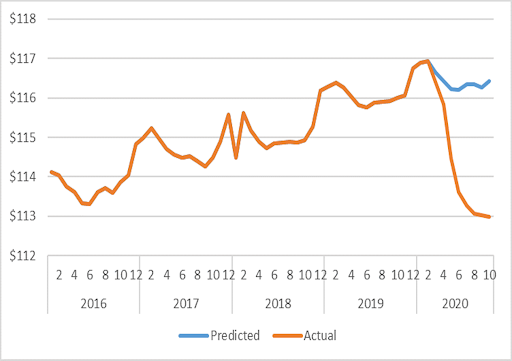
The concept of alimony is straightforward. If one partner relied on the income of the other (maybe they looked after the children while the other worked), they will need a way to sustain themselves financially when the partnership ends.
In hardly every divorce is alimony awarded, nor is it a given. But it’s also not exactly uncommon. Understand what alimony is, how judges determine whether to award it, when you can change or stop making alimony payments and how you and your spouse might come to an agreement on the matter rather than having a judge make the decision for you if you’re going through a divorce and intend to request it or suspect your spouse might do so.
Table of Contents
What Is a Child Support Payment?
In certain regions of the United States, alimony—also known as “spousal” or “maintenance” payments—are regular, preset sums granted to a spouse or former spouse after a separation or divorce. If the paying spouse fails to pay spousal support while having the financial resources to do so, fines and penalties may be imposed.
A legal decree specifies the payment schedules and conditions for paying alimony. You don’t have to pay the $50 cash advance, but the amount shown in the child support.
There are many subtleties involved in alimony payments, whether you are making it or receiving them. For more on how it works, and the varieties, keep reading.
Alimony Types
Although alimony varies from state to state, there are generally two forms.
Spousal Support
People often associate alimony with spousal maintenance since it is the most prevalent kind of support. It occurs when one spouse in a marriage gives a former spouse financial assistance if the previous spouse isn’t self-sufficient. The size of your alimony payments will often increase with the length of your marriage and the economic disparity.
The amount of spousal support is determined by the legal system and the courts. It’s a frequent myth that if you’ve been married for 15 years, you’re automatically entitled to spousal support. But that’s not accurate.
In reality, obtaining spousal maintenance might be difficult. After a divorce, individuals are expected to stop depending on their ex-spouse and become self-sufficient and independent. For someone who relied on alimony both before and after divorce, this might be a devastating blow.
Contractual Alimony
Contractual alimony, as opposed to court-ordered alimony, is when the parties reach an understanding of the amount of support each will provide for the other outside of court (most usually through mediation). It may be a one-time payment or a brief contract to help both parties move on following a divorce. In other cases, it may be a one-time payment each month.
How Courts Make Alimony Decisions
State statutes specify the criteria that courts must follow when determining whether to grant alimony in any given circumstance, as well as the amount and length of the payments. These regulations often vary for alimony paid after a divorce and interim assistance provided during a divorce.
Considerations for Post-Divorce Alimony Awards
Judges often must first determine whether one spouse requires assistance and if the other spouse is able to provide that support before determining whether to award alimony payments after divorce.
While the specific details may vary from state to state, there are certain elements that judges must consider when making the choice of whether to award alimony or not. These include the level of living throughout the marriage, the couple’s assets and obligations, the number of years the marriage lasted, the age and health of each spouse, and the contributions each spouse made to the other’s job progress or training.
In addition, any other variables that the court deems fair can also be taken into account. With so many factors to consider, it is no wonder that judges must carefully weigh all of the evidence before making a decision on alimony.
Continuity of Spousal Support
While a divorce case is pending, spouses often want maintenance payments to assist them to support their living costs. Frequently, the criteria for determining interim alimony vary from those used to determine so-called permanent support. That’s in part because state rules oblige spouses to assist one another while a pair is still married.
Many local courts or states utilize a formula or guideline to make the process of determining the amount of temporary alimony more straightforward.
Repercussions of Failing to Make Alimony Payments
Interest, fines, and even imprisonment may be imposed if you are late with your alimony payments.
For instance, the law mandates that 10% interest be charged for each year that the sum is past due in California. In order to make sure alimony is being paid, the court may mandate wage garnishment. For the 2020 period, non-payment of child support exceeded $100 billion. Therefore, if you knowingly refuse to pay alimony while having the financial resources to do so, the judge may punish you in contempt of court and sentence you to prison time.

Enforcing a Maintenance Order
You may return to court and seek the judge to impose your ex’s spousal support obligations if they are not being met by your ex. The same is true if you and your ex reached an understanding on the matter that was included in the final divorce decision or another court decree. If your ex isn’t abiding by the order, you’ll often file a show cause action, and the court will schedule a hearing to decide why and what the judge should do to enforce it.
A deadbeat spouse who disregards an alimony order may be subject to fines and penalties. Family law courts have a variety of measures at their disposal to enforce alimony payments. Additionally, a court may mandate that a spouse make up any missing payments by paying alimony retrospectively.
Conclusion
A court-approved payment made by a person to their spouse or ex-spouse after a divorce or legal separation is known as alimony. If you try not to pay child support, you may be subject to fines and penalties. There are numerous intricacies regarding alimony payments, whether you are giving or receiving it.